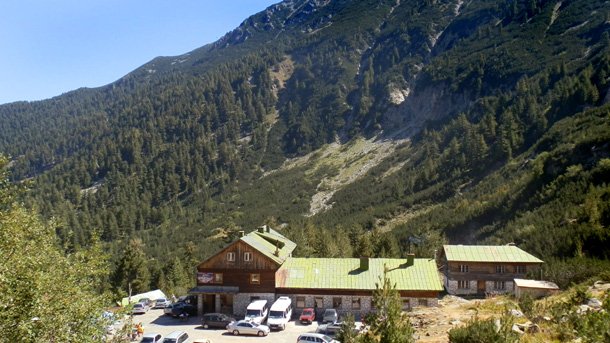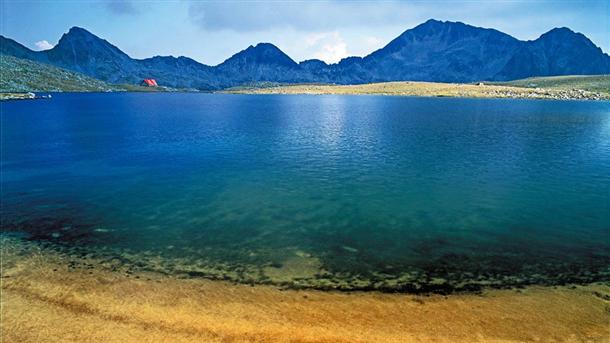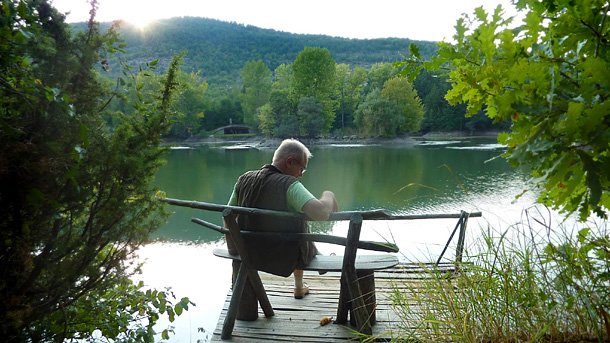At the end of 2012 the Pirin National Park that goes across almost the entire Pirin Mountain in Southwestern Bulgaria, (40,000 ha), marked its 50th anniversary as a protected territory. And 2013 marks the tenth anniversary since the inclusion of this priceless natural site in the UNESCO list of world heritage in its part focused on Man and Biosphere. In 2013 the ten-year plan for the park’s management expires too, and it has to be replaced with a new one. This small detail is telltale about the escalating tensions that have surfaced this season between circles with ambitions to build new ski resorts in Pirin, on the one hand, and environmentalists who believe that over-construction is already a fact in the mountain, on the other.

© Photo: Maria Dimitrova-Pichot
The new battle for Pirin began back in 2011 when the start was given to work for drafting a new plan for the management of the national park. It was then that the mayors of Bansko, Dobrinishte and Razlog spoke up about their intention of building new ski zones above Razlog and Dobeinishte and extending the existing one in Bansko. The word is about 200 km of new ski tracks and the respective cable cars, tow and chair lifts. All this is about new roads too that should connect the three zones. There is an idea to install a cable car lift with a 100-seat cabin aimed to transport tourists above two of the Pirin reserves. The final objective is to make Pirin a global attraction for winter tourism. Opposing such plans that would entail major forest felling and big damage to biodiversity, environmentalists have come up with a different point of view. They say that the region should better develop as a zone for spa, wellness and eco-tourism that guarantees sustainable growth.

© Photo: archive
The bellwether for turning Pirin into a big skiing resort is the town of Bansko. Its ski zone has over the recent years been regularly the venue of various World Cup in Alpine skiing events. Its brand ambassador is the great alpine skier, Italian Alberto Tomba. In the wake of a series of protests of Bansko people, mayor Georgi Ikonomov submitted to the Council of Ministers a proposal for the construction of a second cable car lift in the ski zone urged by a growing demand from skiers.
How have things reached this point? In 2000 a concession was granted to a private company to build a ski track above the town of Bansko aimed to meet the demand from about 7800 tourists. The conclusion was that it would not endanger the existence of the nature park as a protected territory. Unfortunately the region became the scene of uncontrolled construction and today the once small town offers accommodation for as many as 20,000 excluding the accommodation capacity of residential buildings and apart-hotels. As a result the capacity of local accommodation is now five times the one back in 2000. Well, it is now quite obvious that a second cable car lift should be built. However, with plenty of evidence of mass violation of the laws, the prospect of further destruction of the region’s nature by building new and new facilities for tourists, is quite realistic, environmentalists argue. Borislav Sandov, Deputy Chairman of the Greens, recalls that restrictions for building hotels in Bansko have not been observed. On top of that, the concessionaire there has expropriated 60% more territory from what has been conceded to him.
“Once a concessionaire has exceeded the concession by 65 ha and has not been subject to any sanctions, it is absurd that the same concessionaire could exert pressure for building new facilities in Bansko. It is ridiculous that the government supports such ambitions. We believe that there are many other ways to develop tourism in the mountain in a sustainable way that are good enough to keep local businesses going. The region has a wealth of nature resources that we should protect and preserve rather than crippling the mountain because of shortsighted ambition for fast and huge profit.”

© Photo: Maria Dimitrova-Pichot
The final round in the debate for the future of the Pirin National Park which following unbridled construction has narrowly escaped exclusion from the UNESCO world heritage list has entered its decisive phase – the forthcoming adoption of the new plan for the park’s management.
Translated by Daniela Konstantinova
At the Bulgarian Embassy in London, Prof. Bettany Hughes presented excerpts from the new BBC series - Wonders of Bulgaria. Prof. Bettany Hughes is the author of two episodes of the documentary. Hughes is a historian, writer, author of..
According to the Annual Report on the Health Status of Bulgarian Citizens for 2023, t he main cause of death in Bulgaria is diseases of the cardiovascular system (61.1%), followed by oncological diseases (16.5%) and diseases of the respiratory system..
In the week of St. Andrew’s Day (also known as Bears’ Day or Mechkinden), WWF is drawing attention to six orphaned bear cubs who have been given a second chance at life. The initiative is part of the "Subscribe to Nature" campaign and..
Dear friends, We at Radio Bulgaria send you our warmest wishes for a Merry Christmas! May your hearts overflow with joy, your homes be filled..
The 22nd edition of the "Bulgarian Christmas" charity performance will take place tonight at the Ivan Vazov National Theatre. The initiative is held..
For the fifth consecutive year, the Sketches of Sofia initiative have delighted Sofia's residents with gifts placed at the city's statues . Every year,..

+359 2 9336 661
